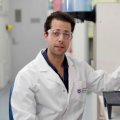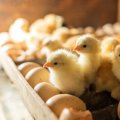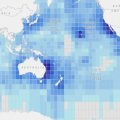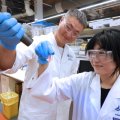The University of Queensland topped the nation in the prestigious Australian Research Council Future Fellowships announced today, being awarded 31 fellowships worth a total of more than $22 million.
A total of 200 fellowships were awarded nationally, and UQ received more than 70 per cent of the fellowships in Queensland.
Successful UQ projects included research into a novel treatment for stroke-induced brain injuries, a study of temperature responses in plants, an analysis of Australian federalism and a plan to model the impacts of climate change in arid parts of Australia.
UQ Deputy Vice-Chancellor (Research) Professor Max Lu congratulated the new Future Fellows and paid tribute to the Commonwealth Government for its support of research.
The Future Fellowships scheme, started in 2009, aims to address the opportunity gap for mid-career researchers and academics, many of whom would otherwise be lost to international competitors.
The scheme is awarding up to 1000 fellowships over five years, at a total value of $844 million.
"UQ has now attracted 47 fellowships over the two years the scheme has been operating, and this year received almost double the number we received last year," Professor Lu said.
"It attests to our ability to attract and retain the best national and international research talent."
"Our success rate this year is nothing short of outstanding at 45.6 per cent, compared with a national average of 26.4 per cent."
Last year, UQ received 16 Future Fellowships worth almost $13 million.
UQ's 2010 Future Fellows, their schools and projects, announced by the ARC today, are:
Professor Nicholas Aroney, School of Law, Reconceiving Australian federalism: fundamental values, comparative models and constitutional interpretation
Dr Thiruma Arumugam, School of Biomedical Sciences,Novel pharmacological agents to target stroke-induced brain injury
Dr Felicity Baker, School of Music, What's in the music? A lifespan model of emotional and musical creativity in therapeutic song writing
Dr Sureshkumar Balasubramanian, School of Biological Sciences, Genomics of temperature response in plants
Associate Professor Christine Beveridge, ARC Centre of Excellence for Integrative Legume Research, Strigolactone, a new plant hormone: its regulation, role and potential for plant improvement
Dr Idriss Blakey, joint appointment between the Australian Institute for Bioengineering and Nanotechnology and the Centre for Advanced Imaging, Smart magnetic resonance imaging contrast agents: from early detection to assessment of drug delivery mechanisms
Associate Professor Michael W Bromley, School of Mathematics and Physics, A study of ultra-cold atom interferometry and interactions through high-performance computing
Dr Alexander Broom, School of Social Science, The changing landscapes of medical pluralism: a sociological analysis of patient experiences and decision making in Australia, India and Brazil
Dr Lynda Cheshire, School of Social Science, Transforming the outer suburbs through master-planned estates: a governmental challenge
Dr Richard Clark, Institute for Molecular Bioscience, Development of effective peptide-based drugs
Dr Brett Collins, Institute for Molecular Bioscience, Defining the molecular mechanisms of intracellular protein trafficking
Associate Professor David Copland, School of Health & Rehabilitation Sciences and UQ Centre for Clinical Research, Optimising how the brain processes language in healthy and neurological populations
Dr Tamara Davis, School of Mathematics and Physics, Dark matter, dark energy, and dark flow: galaxy motion reveals fundamental physics
Dr Aijun Du, Australian Institute for Bioengineering and Nanotechnology, Electronic functionality in nanoscale materials: from discovery to design
Dr Bryan Fry, School of Biological Science, Adaptive evolution of coleoid (cuttlefish, octopus, squid) venoms
Dr Benjamin Hogan, Institute for Molecular Bioscience, Genetic analysis of lymphatic vascular development
Dr Amanda Keddie, School of Education, Socially-just schooling: a cross-cultural analysis of gender, cultural diversity and social change in Australia and the UK
Dr Karen Kheruntsyan, School of Mathematics and Physics, Fundamental tests of quantum mechanics with ultra-cold atomic gases
Dr Dustin Marshall, School of Biological Science, Understanding and predicting invasion in the sea: a mechanistic approach
Associate Professor Clive McAlpine, School of Geography, Planning & Environmental Management, Modelling the potential of large-scale revegetation to reduce the impacts of climate change in semi-arid Australia
Dr Evan Moore, School of Chemistry and Molecular Biosciences, Caged lanthanides for use in photo-dynamic therapy and near infra-red imaging
Dr Celine Nauges, School of Economics, Informing economic policies to enhance an efficient and sustainable use of water resources in a context of high uncertainty on future climate
Dr Murray Olsen, School of Mathematics and Physics, Manufacturing, controlling, manipulating and measuring continuous-variable quantum entanglement
Associate Professor Mark A Schembri, School of Chemistry & Molecular Biosciences, How bacteria cause disease in the urinary tract
Dr Matthew Sweet, Institute for Molecular Bioscience, Toll-like receptors in infectious and inflammatory diseases: the double-edged sword of innate immunity
Professor Ajayan Vinu, Australian Institute for Bioengineering and Nanotechnology, Design of novel nanoporous semiconductor materials for clean environment and energy
Associate Professor Guy Wallis, School of Human Movement Studies, Mechanisms of learning at the interface between perception and action
Associate Professor Stephen Williams, Queensland Brain Institute, Operation of nerve cell networks in the neocortex
Dr Kerrie Wilson, School of Biological Sciences, Prioritising habitat restoration for biodiversity and ecosystem service outcomes
Associate Professor Xiu Song Zhao, School of Chemical Engineering, Carbon-based electrode materials for electrochemical energy storage and water desalination
Associate Professor Bruno van Swinderen, Queensland Brain Institute, Perceptual suppression mechanisms in the Drosophila brain
UQ's outstanding national number one ranking for Future Fellowships announced today was followed by:
- The Australian National University (25 proposals approved worth $17 million)
- The University of Sydney (21 proposals approved worth $15.8 million)
- Monash University (17 proposals approved worth $11.7 million)
- The University of Melbourne ( 17 proposals approved worth $12 million)
Media: Fiona Cameron, UQ Communications, ph 07 3846 7086, Kathy Grube, UQ Communications, ph 07 334 60561
.jpg)











